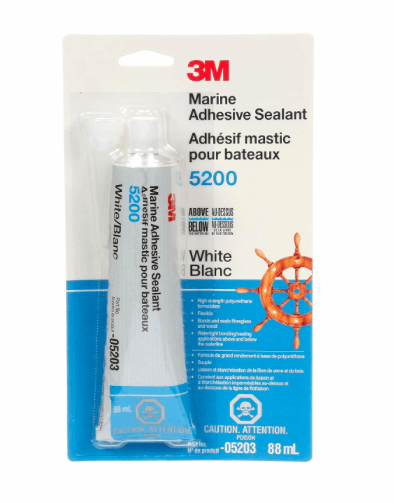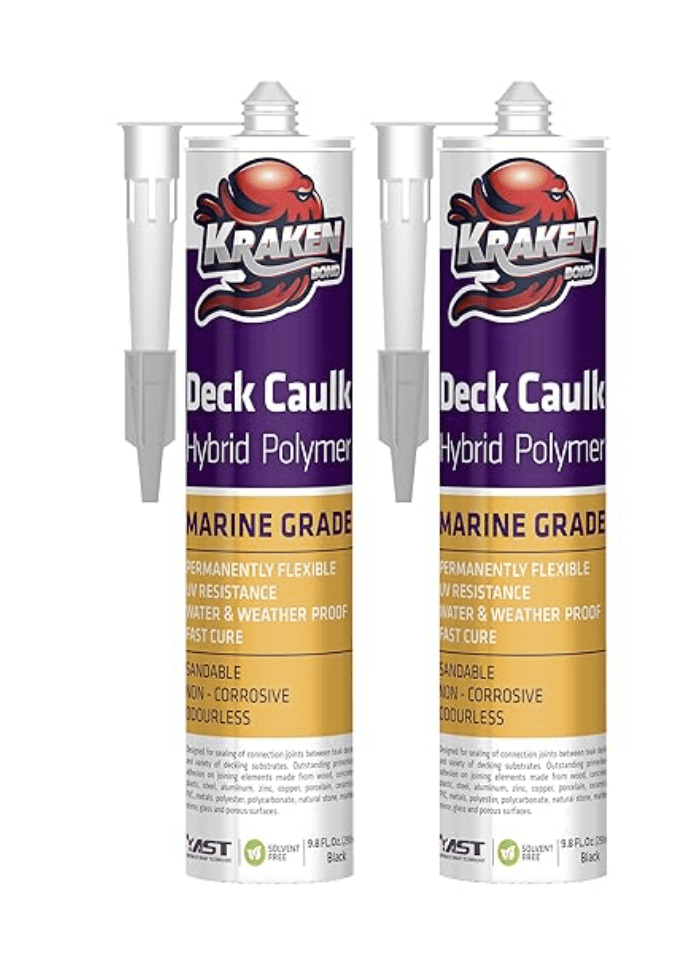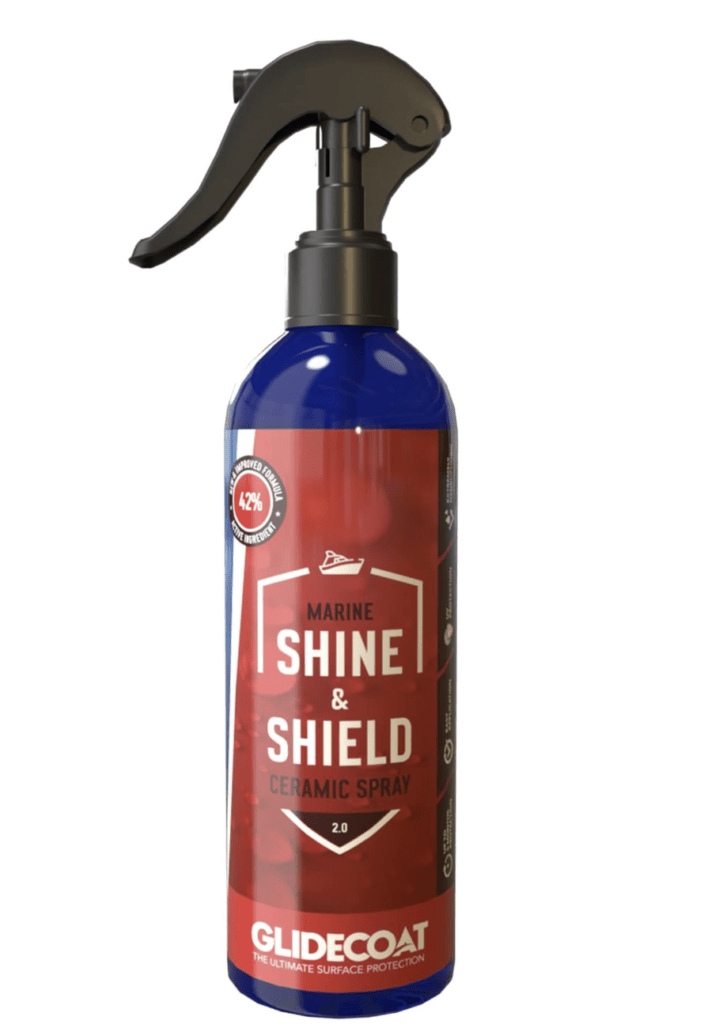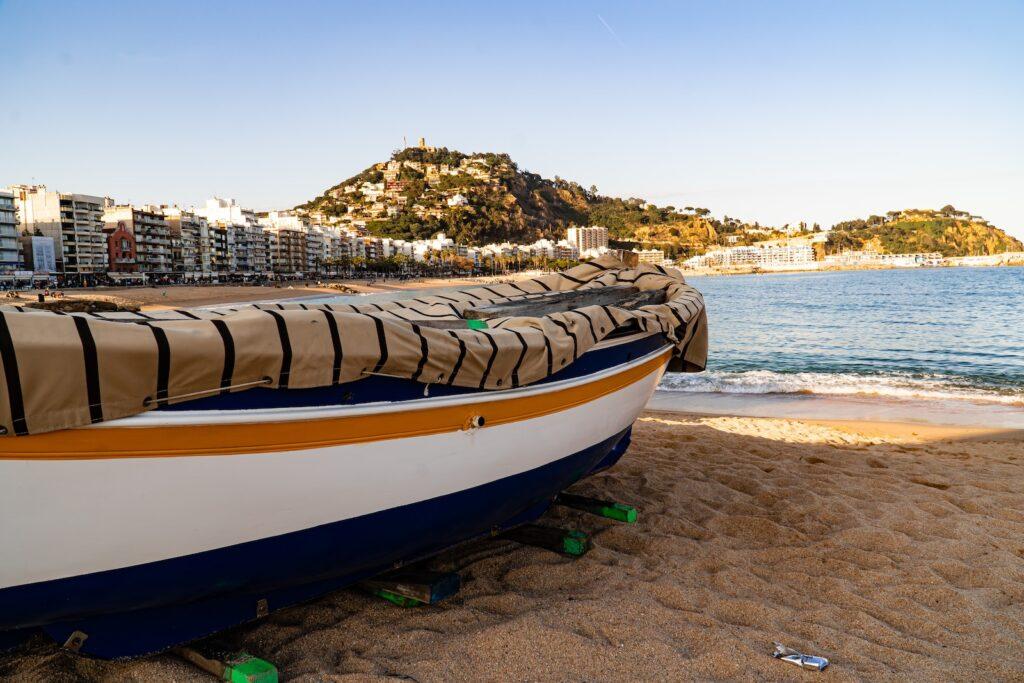Best Sealant for Aluminum Boat
When it comes to keeping your beloved vessel shipshape and water-tight, not all sealants are created equal.
Our pick

Our Score:
4.8/5
Also good

Our Score:
4.4/5
Most reviewed

Our Score:
4.6/5
But don’t worry, we’re here to guide you through the sea of options. Whether you’re patching a small leak or reinforcing the hull, selecting the right sealant can make a world of difference. Let’s dive right in and find that aluminum ally that will keep your boat buoyant and ready for whatever adventures await!
Key Takeaways:
- The Sealant Choice: The type of sealant used for an aluminum boat greatly influences its performance and durability. Polyurethane sealants are recommended for their strong bond, temperature resistance, and waterproofing abilities. Brands like 3M Marine Adhesive Sealant 5200, TotalBoat Aluminum Boat Leak Sealer, and Flex Seal Liquid Rubber are highly recommended for their exceptional properties.
- Factors to Consider: Several factors should be considered when choosing a sealant. These include the climate where the boat will be used, the durability of the sealant, its flexibility, and the type of sealant. Silicone, epoxy, polyurethane, and polysulfide each have their unique advantages and disadvantages, so understanding the boat’s needs is critical.
- Application and Maintenance: Prior preparation is essential when sealing an aluminum boat. The surface should be clean and slightly rough to allow for proper bonding. Regular inspections post-sealing are also important to ensure the sealant remains effective. Safety precautions, such as working in a well-ventilated space and using protective gear, should be adhered to when using these sealants.
Top 3 Best Sealants for Aluminum Boat
The best sealant for an aluminum boat is a polyurethane sealant. Polyurethane sealants are very durable and provide excellent protection against water and other elements. They also provide a strong seal that won’t easily be broken and can withstand extreme temperatures. They are also easy to apply and will last for years.
- 3M Marine Adhesive Sealant 5200
- Kraken Bond Hybrid Polymer Sealant
- Glidecoat Marine Shine & Shield
1. 3M Marine Adhesive Sealant 5200

This bad boy is super durable and works excellently for applications both above and below the waterline. It’s a bit of a Hulk – once it cures, it doesn’t budge!
When it comes to protecting your aluminum boat from the harsh elements of Mother Nature, you can’t beat a top-notch sealant. Now, let me tell you, 3M Marine Adhesive Sealant 5200 takes the cake. This stuff sticks like a stubborn barnacle, forming a watertight bond that can handle anything the open water throws at it.
What sets 3M 5200 apart? Well, besides its stellar bonding power, it’s extremely flexible. It can handle the natural flex and movement of your boat without losing its grip. Plus, it’s designed specifically for the marine environment, so you won’t have to worry about it breaking down or losing its seal.
2.Kraken Bond Hybrid Polymer Sealant

Your go-to solution for those pesky leaks. This sealant is easy to apply and is known for its exceptional adhesion and waterproofing prowess. Plus, it’s made specifically for aluminum boats. Talk about a perfect match!
3. Glidecoat Marine Shine & Shield — Marine Sealant Ceramic Spray

Let’s not forget this popular player. It creates a watertight, flexible coating that’s resistant to weather, UV rays, and even salt water. It’s like a protective superhero suit for your boat!

Choosing the Right Marine Sealant for Your Boat
When choosing the best sealant for your aluminum boat, it’s important to consider the environment in which your boat will be used. Silicone, epoxy, polyurethane, and polysulfide sealants each have their own set of benefits and drawbacks, so it’s important to determine which type of sealant is best suited to your boat’s needs.
Climate
The climate in which your boat will be used is an important factor to consider when choosing a sealant. If your boat will be used in a cold climate, silicone sealants are the best choice, as they are highly resistant to UV rays and other environmental factors. If your boat will be used in a hot climate, epoxy and polyurethane sealants are the best choice, as they are highly resistant to heat.
Durability
The durability of the sealant is also an important factor to consider. Silicone and epoxy sealants are highly durable and will not corrode or degrade over time. Polyurethane and polysulfide sealants are not as durable as silicone and epoxy, but they are still highly resistant to abrasion and other environmental factors.
Flexibility
Flexibility is another important factor to consider when choosing a sealant for your aluminum boat. Silicone, epoxy, polyurethane, and polysulfide sealants are all highly flexible, allowing them to move with the boat as it moves in the water. This ensures that the sealant will remain intact and continue to provide a strong, durable bond.
Types of Sealants
The most common type of sealant used on aluminum boats is silicone sealant. Those types of marine sealants are waterproof and provide a strong, durable bond that can withstand the elements. Other types of sealant include epoxy, polyurethane, and polysulfide. Each type of sealant has its own set of benefits and drawbacks, so it’s important to consider what type of sealant is best suited to your boat’s needs.

Silicone Sealant
Silicone sealants are the most popular type of sealant for aluminum boats. They are waterproof, flexible, and provide a strong bond that will last for years. The most common silicone sealants used on aluminum boats are marine grade, which is formulated specifically for use in saltwater. Silicone sealants are also highly resistant to UV rays and other environmental factors, making them ideal for use in harsh conditions.
Advantages of Silicone Sealant
Silicone sealant is a type of sealant made from silicone, a synthetic rubber. It provides excellent adhesion to most surfaces, making it a great choice for projects that require a strong, flexible seal. It is also temperature resistant and waterproof, and can be used in a wide range of applications.
- Easy to apply: easy to apply and require minimal preparation.
- Durable: highly durable and will not corrode or degrade over time.
- Flexible: highly flexible, allowing them to move with the boat as it moves in the water.
- Resistant to UV Rays: highly resistant to UV rays, making them ideal for use in harsh conditions.
It is also non-toxic and can be safely used in many areas of the home and workplace. Silicone sealant is easy to apply and cures quickly. Its flexibility enables it to stay in place even with joint movement.
Epoxy Sealant
Epoxy sealants are a popular choice for aluminum boats, as they provide a strong, durable bond that is resistant to corrosion and other environmental factors. Epoxy sealants are also highly resistant to abrasion, making them ideal for use in rough conditions.
Advantages of Epoxy Sealant
Epoxy sealant is a highly durable and versatile material used in a variety of applications. It provides excellent adhesion and sealing properties, making it an ideal choice for waterproofing and protecting surfaces. Epoxy sealant is also highly resistant to chemicals, making it a great choice for use in industrial and commercial applications.
- Strong Bond: Epoxy sealants provide a strong bond that is resistant to corrosion and other environmental factors.
- Abrasion-Resistant: Epoxy sealants are highly resistant to abrasion, making them ideal for use in rough conditions.
- Flexible: Epoxy sealants are highly flexible, allowing them to move with the boat as it moves in the water.
- Resistant to UV Rays: Epoxy sealants are highly resistant to UV rays, making them ideal for use in harsh conditions.
NOTE: Epoxy sealant is easy to apply and can be used in a variety of temperatures and environments. It also offers a great combination of strength and flexibility, making it a great choice for use in structural applications.
Polyurethane Sealant
Polysulfide sealants are another popular choice for aluminum boats. They provide a strong, durable bond that is highly resistant to abrasion and other environmental factors. Polysulfide sealants are also highly resistant to UV rays, making them ideal for use in harsh conditions.
Advantages of Polysulfide Sealant
Polysulfide sealant is a type of sealant that is often used for sealing joints and seams in applications such as roofing, window frames, and plumbing. Its primary advantage is its strong adhesive properties, which make it ideal for creating a watertight seal in areas where moisture and water are a concern.
- Strong Bond: provide a strong bond that is resistant to abrasion and other environmental factors.
- Abrasion-Resistant: highly resistant to abrasion, making them ideal for use in rough conditions.
- Flexible: highly flexible, allowing them to move with the boat as it moves in the water.
- Resistant to UV Rays: highly resistant to UV rays, making them ideal for use in harsh conditions.
It also has excellent flexibility, making it ideal for areas where movement or expansion may occur. Polysulfide sealant is highly resistant to temperature fluctuations and ultraviolet radiation, making it a great choice for outdoor applications. It is easy to apply and can be used in a variety of applications.
Best marine adhesive for aluminum
There’s one marine adhesive that stands tall: 3M 5200 Marine Adhesive Sealant. This beast is perfect for aluminum, with its super strong bond and unbeatable resistance to weathering and saltwater.
Not only does it bond like a barnacle to aluminum, but it also works on a host of other materials — fiberglass, wood, you name it. It’s designed to stay flexible, so it can absorb shocks and stresses without losing its grip.
NOTE: One word of caution though: once it sets, it’s not going anywhere. So, measure twice, apply once. This adhesive is the marine equivalent of a bear hug from a grizzly. It’s not letting go. So, if you’re looking for a marine adhesive for aluminum that’s as reliable as a sunrise, go for 3M 5200. Just remember, it plays for keeps!
Best way to seal aluminum boat
Epoxy is like the superhero of sealants, bonding with your boat to form a shield that’s tougher than the Hulk’s biceps. This marvel material can fill in any pesky leaks and creates a smooth, waterproof barrier that’s ready to take on the harshest marine conditions.
But the secret sauce is in the prep work. You need to ensure the area you’re sealing is clean and slightly roughed up so that the epoxy can bond properly. Think of it like a mountain climber – it needs a bit of texture to get a good grip.
Grab a wire brush or sandpaper, get the surface ready, then let the epoxy work its magic. Once it’s cured, you’ve got yourself a sealed aluminum boat ready for the open water. Time to break out that captain’s hat, my friend!
Marine grade sealant for aluminum
Marine-grade sealant for aluminum is flexible, allowing it to absorb vibrations and stay strong despite boat movement or changes in temperature. It’s resistant to the damaging effects of saltwater and UV rays, which are common in marine environments.
Whether you’re patching up a little wear-and-tear or working on a major boat renovation, this sealant is your trusty sidekick. It’s all about keeping your vessel shipshape and ready for the next adventure. Good sealant isn’t just about preventing leaks; it’s the first line of defense in preserving the lifespan of your boat.
Waterproof sealant for aluminum
This stuff is like a superhero cape for your aluminum items. It swoops in and provides a tough, durable layer that laughs in the face of water damage. Not only does it seal up any existing leaks, but it also prevents future corrosion. It’s the perfect way to extend the life of anything from aluminum boats to gutters.
With a brush, roller, or even a sprayer, you can give your aluminum the waterproof shield it deserves. Wave goodbye to water worries and hello to an ultra-protected, shiny, and happy aluminum!
Aluminum boat hull sealer
Aluminum boat hull sealer — that’s the superhero your boat didn’t know it needed! This stuff acts like a protective shield, defending your aluminum boat from corrosion, leaks, and all those pesky marine nasties that could spoil your sea-faring adventures.
We’re talking about a robust barrier that seals minor cracks, strengthens your hull, and even improves your boat’s overall performance. It can help your boat to glide more smoothly through the water by reducing drag.
Safety Considerations
Using an aluminum boat sealer can be a total game-changer. It helps keep your vessel water-tight, giving you that smooth, worry-free sailing experience. But before you jump in and slap on that sealer, here’s what you’ve gotta remember: safety first!
Working with boat sealer means dealing with chemicals, so you’ll want to gear up. Gloves, eye protection, and well-ventilated spaces are non-negotiable. It’s like your mom always said, better safe than sorry!
Maintenance Tips

I
Sealing an aluminum boat not only helps keep leaks at bay but also extends its lifespan. Here’s a simple maintenance guide that’s easy to remember:
- Prep and Clean: Start with a sparkling clean boat. Dirt or grease can hinder the sealant’s adhesion. Scrub it down with a cleaner suitable for aluminum.
- Prime Time: Apply a primer designed for aluminum. It preps the surface and increases the sealer’s effectiveness.
- Seal the Deal: Now, grab your aluminum boat sealer and get down to business. Apply it evenly, paying special attention to rivets and seams. Let it cure as per the manufacturer’s guidelines.
- Inspect Regularly: Post-sealing, regular inspections are vital. Look for signs of wear or damage that might need a touch-up.
Well-sealed boat is a happy boat. So get that sealer out and give your aluminum buddy the love it deserves!
Cost & Where to Buy
The cost of sealants for aluminum boats varies depending on the type of sealant and the quantity purchased. Silicone and epoxy sealants tend to be more expensive than polyurethane and polysulfide sealants, but they are also more durable and provide a stronger bond.
Sealants for aluminum boats can be purchased from a variety of retailers, including marine supply stores, hardware stores, and online retailers. It’s important to compare prices and read customer reviews before making a purchase, as prices and quality can vary significantly from retailer to retailer.
FAQs
What is the best sealant for aluminum boats?
The best sealant for aluminum boats depends on the environment in which the boat will be used and the type of sealant that best suits the boat’s needs. Silicone, epoxy, polyurethane, and polysulfide sealants are all popular choices, as they provide a strong, durable bond that is resistant to corrosion and other environmental factors.
How often should I reapply the sealant?
The frequency of reapplying the sealant depends on the type of sealant and the environment in which the boat is used. In general, sealants should be inspected regularly and reapplied as needed.
What safety precautions should I take when applying sealant?
It’s important to read and follow the instructions on the sealant’s packaging, and to wear protective clothing, such as gloves and goggles, when applying the sealant. Many sealants, particularly silicone and epoxy, contain hazardous chemicals that can be dangerous if inhaled or ingested.
Conclusion
Choosing the right sealant for an aluminum boat is essential to its longevity and performance. The most common types of sealants used on aluminum boats are silicone, epoxy, polyurethane, and polysulfide. Each type of sealant has its own set of benefits and drawbacks, so it’s important to consider what type of sealant is best suited to your boat’s needs. Factors such as climate, durability, and flexibility should all be taken into consideration when selecting a sealant for your aluminum boat.
